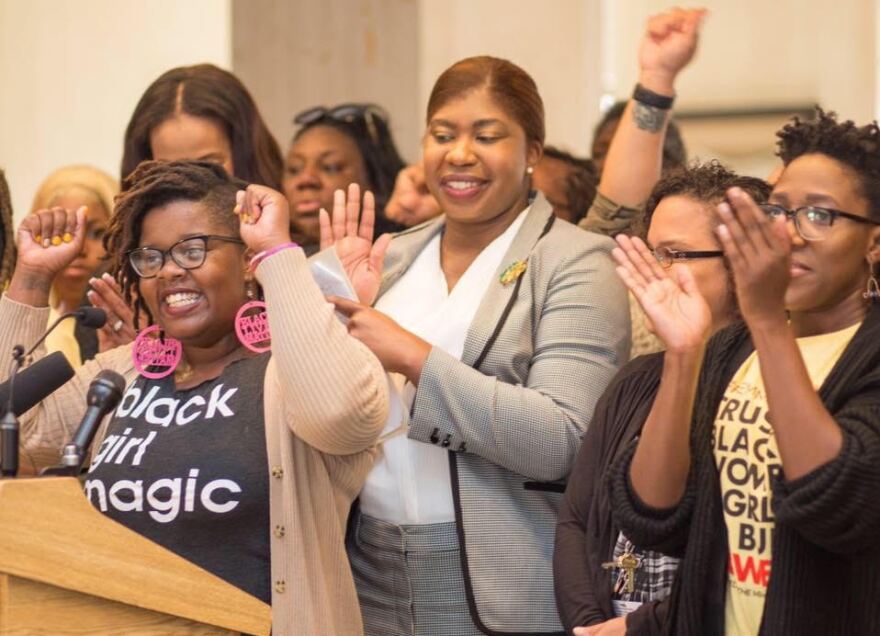In the U.S. more than 700 women die each year while pregnant or shortly after giving birth, and an alarming number of them are black. According to the Centers for Disease Control and Prevention (CDC), black women in Florida are two times as likely to die while or after giving childbirth compared to white women.
Democratic state lawmakers Rep. Kamia Brown and Sen. Audrey Gibson sought to address the state's problem through legislation. The bill (SB 758) would have established a Maternal Mortality Task Force that would investigate maternal deaths and then come up with best practices to curb those deaths, but it did not reach he Governor's desk this legislative session.
Jamarah Amani, the executive director of the Southern Birth Justice Network, a founding member of the Black Mamas Matter Alliance and a community midwife based in Miami, says the answer to the disparity in death rates has to do with the lived experience of being a black woman in America. She was in Tallahassee last week advocating for the bill and joined Sundial today to talk about the scope of the problem facing black mothers.
WLRN: Jamarah, why the disparity (in maternal health rates)?
AMANI: The issue of black maternal mortality is very complex. It's not just one answer. Racism is a big factor. The amount of racism that someone experiences over their lifetime will impact their health outcomes. We (Souther Birth Justice Network) are looking at a problem of race. We are looking at the racism that people encounter in the health care system as well as in their daily lives. We're also looking at education. We know that very well educated black women with high incomes and access to health care still have a higher mortality rate than white women who are high school dropouts. So there's something else at play here that goes beyond education, income and access.
You've spent so many years (17) now helping mothers. What are the typical concerns that you hear from mothers as they're preparing for childbirth?
Well the number one thing is not being heard by providers, not having their rights respected and being dismissed. It has happened to even the top celebrities, like Serena Williams who recounted her experience (on social media) of giving birth and having to literally grab a nurse and say, 'Help me. There's something wrong and I need medication,' and having been dismissed several times before that. It's happening to black women everywhere and the implicit bias is inherent in our health care system. Unfortunately, we have to start from scratch and go back and train providers and medical students that are just coming out on how to care for our communities.
Midwives and doulas really matter a lot because midwives and doulas provide protective factors for black women. In particular for black women, there's a long tradition of midwifery care in our communities and black midwives have been systematically pushed out of the system. So bringing midwives back is a way to protect mothers, it's a way to make sure that their voices are heard and that they get one-to-one humanistic holistic care.
Throughout the entire process from when a woman finds out she's pregnant to when childbirth, I want to know what black women are not getting that white women are.
Well it starts before that first pregnancy test, because we're talking about the "life course perspective," which is a theory that was advanced by Dr. Michael Lu of the CDC. It states that the amount of racism that someone experiences through their lifetime will impact their health outcomes. So it starts before that first pregnancy test -- it relates to the level of care that people are receiving before they get pregnant or in-between pregnancies. But yes, definitely the care during the pregnancy matters too. We need quality care. We need access to care for everyone regardless of race, income and immigrant status. We need providers that listen. We need culturally competent care. We need care that respects people's rights and their decision making power over their own bodies. Oftentimes people go into a hospital or a clinical care setting and feel like a number or feel like their rights are being violated or feel like things are being done to them and that they are not partners in their own health care decision making.

